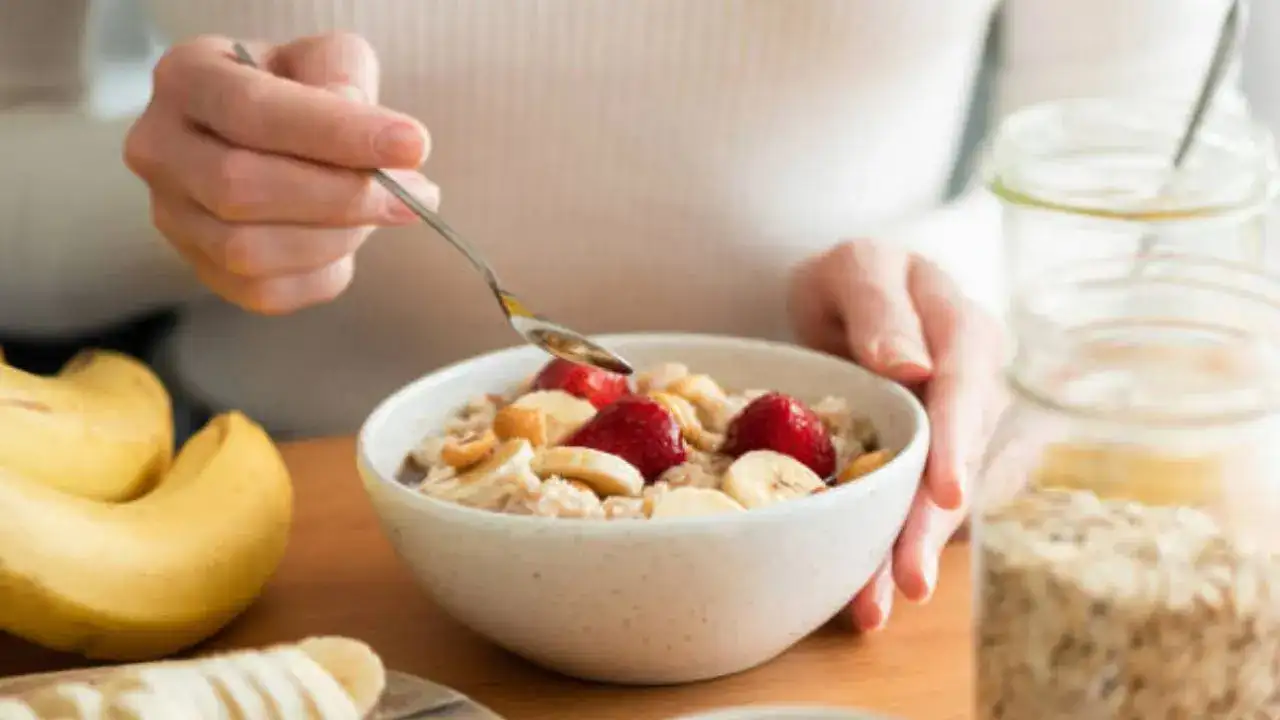
Eating Fruits On An Empty Stomach? Here’s Why It Might Not Be As Healthy As You Think! (Image Credits: iStock)
We all think that having fruits first thing in the morning can be good for digestion and can even help with weight loss, but is this actually true or just a myth? Fruits are packed with essential vitamins, minerals, and antioxidants, making them a staple in any healthy diet. Many believe that eating fruits on an empty stomach maximizes nutrient absorption and aids digestion. However, some experts argue that consuming fruits first thing in the morning may not be as beneficial as it seems and, in some cases, could lead to digestive issues and blood sugar spikes.
The Myth: Fruits Are Best Eaten on an Empty Stomach
A common claim suggests that eating fruits on an empty stomach enhances digestion and prevents bloating, gas, or fermentation in the stomach. Some even believe that mixing fruits with other foods slows digestion and causes toxins to accumulate in the gut.
Dr Michael Greger, a physician and nutrition expert, explains, “The digestive system is well-equipped to process multiple food types simultaneously. The notion that fruits ferment in the stomach or cause toxicity when combined with other foods is a myth with no scientific backing.”
The Reality: Potential Downsides of Eating Fruits First Thing in the Morning
While fruits offer numerous health benefits, consuming them on an empty stomach may not always be ideal. Here are some potential risks:
1. Blood Sugar Spikes and Energy Crashes
Fruits contain natural sugars, primarily fructose, which can cause a rapid spike in blood sugar levels when eaten alone, especially in people with insulin resistance or diabetes.
A study published in The Journal of Clinical Endocrinology and Metabolism found that consuming simple carbohydrates, such as fruit, without fibre, protein, or fat can lead to fluctuations in blood sugar levels, causing energy crashes later in the day.
Registered dietitian Dr Lisa Young notes, “Pairing fruits with protein or healthy fats can help stabilize blood sugar levels and provide longer-lasting energy compared to eating fruit alone on an empty stomach.”
2. Digestive Discomfort
Certain fruits, such as citrus fruits (oranges, grapefruits, and lemons), have high acidity levels, which may cause acid reflux or stomach discomfort, especially when eaten first thing in the morning.
Dr Will Bulsiewicz, a board-certified gastroenterologist, states, “For people prone to acid reflux, consuming acidic fruits on an empty stomach can trigger symptoms like heartburn or indigestion. It’s often better to eat them with a balanced meal.”
High-fibre fruits like pears and apples may cause bloating or gas when eaten alone, particularly in those with irritable bowel syndrome (IBS) or sensitive digestion.
3. Delayed Satiety and Increased Hunger
Eating fruits alone may not keep you full for long due to their high water content and lack of protein or fats. This can lead to increased hunger and overeating later in the day.
A study published in The American Journal of Clinical Nutrition found that meals containing a mix of fibre, protein, and healthy fats led to longer satiety compared to carbohydrate-rich foods eaten alone.
Nutritionist Keri Gans explains, “If you eat just fruit for breakfast, you might find yourself hungrier sooner. Adding a source of protein or fat, like yogurt or nuts, helps keep you full longer.”
When and How Should You Eat Fruits for Maximum Benefit?
To get the most from your fruit intake, consider these recommendations:
1. Pair Fruits with Protein or Healthy Fats
Instead of eating fruit alone, combine it with proteins or healthy fats to slow digestion and maintain steady blood sugar levels.
Pair bananas with peanut butter or almonds.
2. Choose Low-Glycemic Fruits
If you prefer eating fruit in the morning, opt for low-glycemic index (GI) fruits, which have a slower impact on blood sugar.
Low-GI Fruits: Berries, apples, pears, peaches, and cherries.
3. Eat Fruits as a Mid-Morning or Post-Meal Snack
Studies suggest that consuming fruit after a meal or as a mid-morning snack can help maintain steady energy levels and prevent sugar crashes. Eating fruit after a meal rich in protein and fibre slows the absorption of sugars, reducing the likelihood of energy dips.
Should You Eat Fruits on an Empty Stomach?
While fruits remain a highly nutritious food choice, eating them alone on an empty stomach may not be the best practice for everyone. For people with diabetes, acid reflux, or sensitive digestion, consuming fruit with protein or healthy fats can prevent digestive issues and blood sugar spikes.
Dr Young explains, “It’s not about avoiding fruits in the morning, but rather eating them in a way that optimizes digestion and energy levels. A well-balanced meal that includes fruits is the best approach.”
So, instead of reaching for just a banana or orange in the morning, try pairing it with nuts, yogurt, or whole grains for a balanced and satisfying start to your day.
Get Latest News Live on Times Now along with Breaking News and Top Headlines from Health and around the world.


